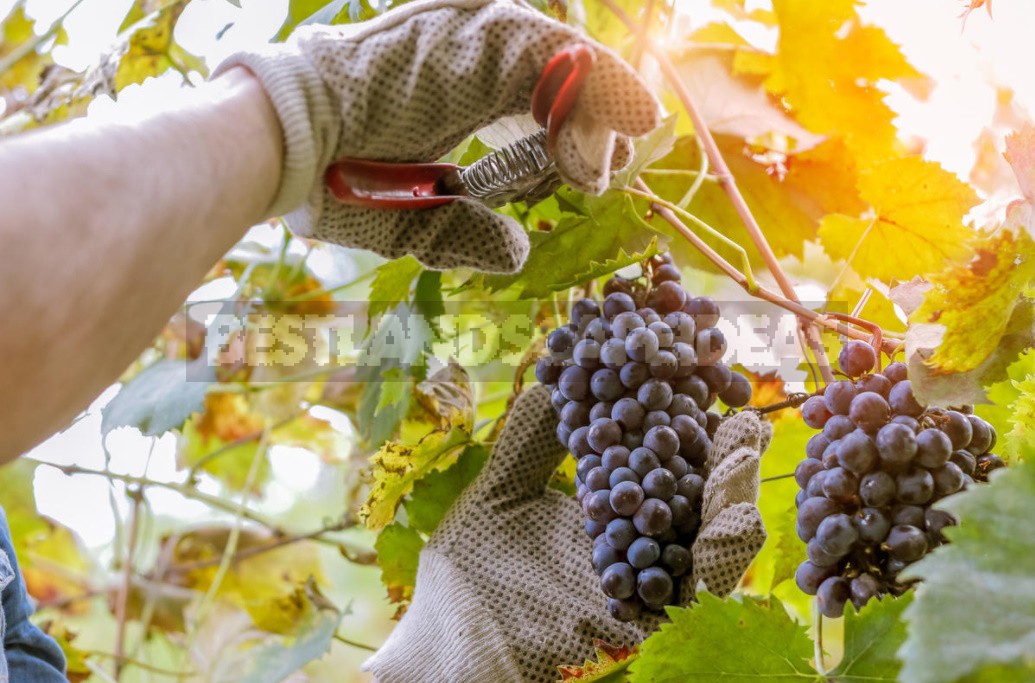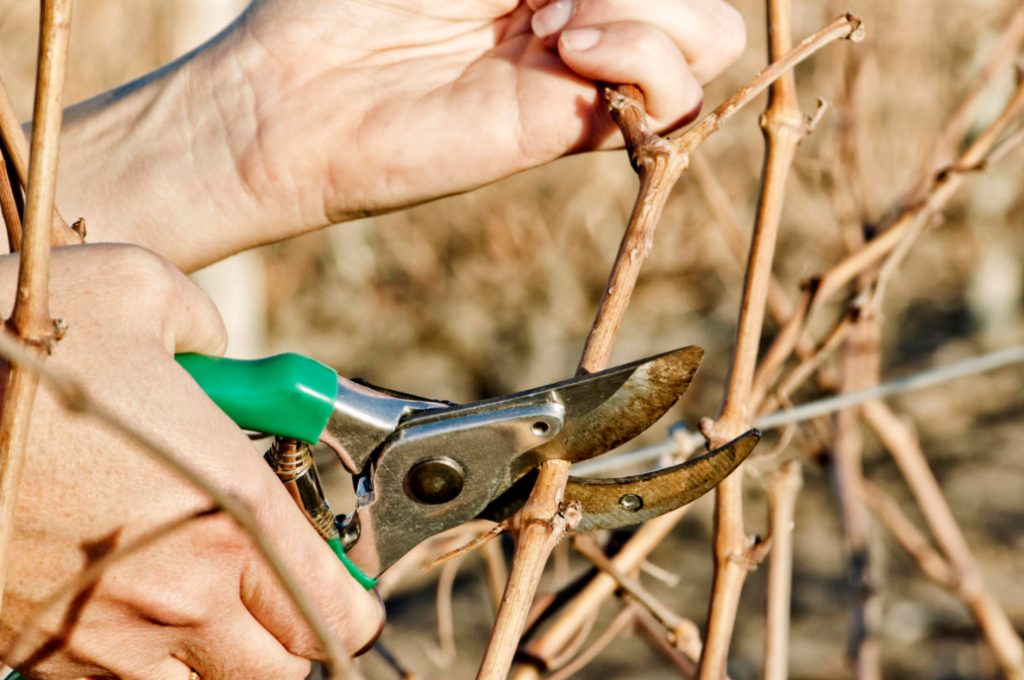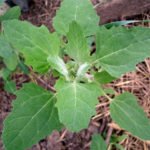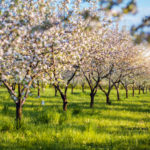Proper formation of grapes is a prerequisite for successful cultivation in any region. The plant itself does not pursue the goal of growing as many sweet large berries as possible, keeping up in a timely manner. With proper pruning, we “explain” to the grape Bush what is required of it, while at the same time protecting it from overloading.
The simple formation of grapes in a sleeve form according to the observations of gardeners, is very suitable for cool regions. A Bush formed by two arms is easy to lay on the ground in the fall, which makes it quite easy to cover it for the winter. For wintering grapes planted in the ground, shelter is required. In order to clearly understand where that comes from, consider the pruning of this crop over the years.
First year
Planted in the spring, the seedling has time to grow and Mature in the summer, and in the lower part — it is well lignified. But in mid-late August, the apical point of growth should still be plucked (over the 8-10-th leaf) to stop further growth of the vine. For clarity, the drawings-diagrams show not the leaves, but only the buds. In the fall, before the shelter, you need to prune the young plant, leaving only 2 buds. For the winter, you need to organize a dry shelter — the same as for roses.
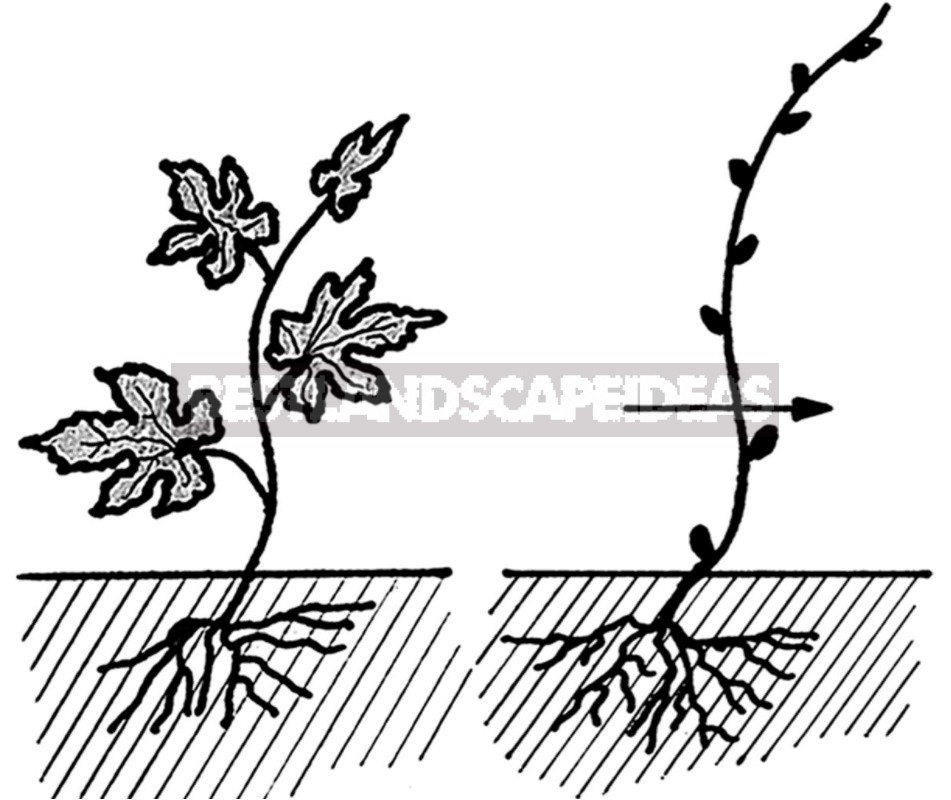
Second year
In the spring of the second year, 2 shoots will go from the kidneys at once — first-order sleeves, which should be shortened in the fall, again leaving 2 lower buds on each, put on the soil and put a shelter over them.
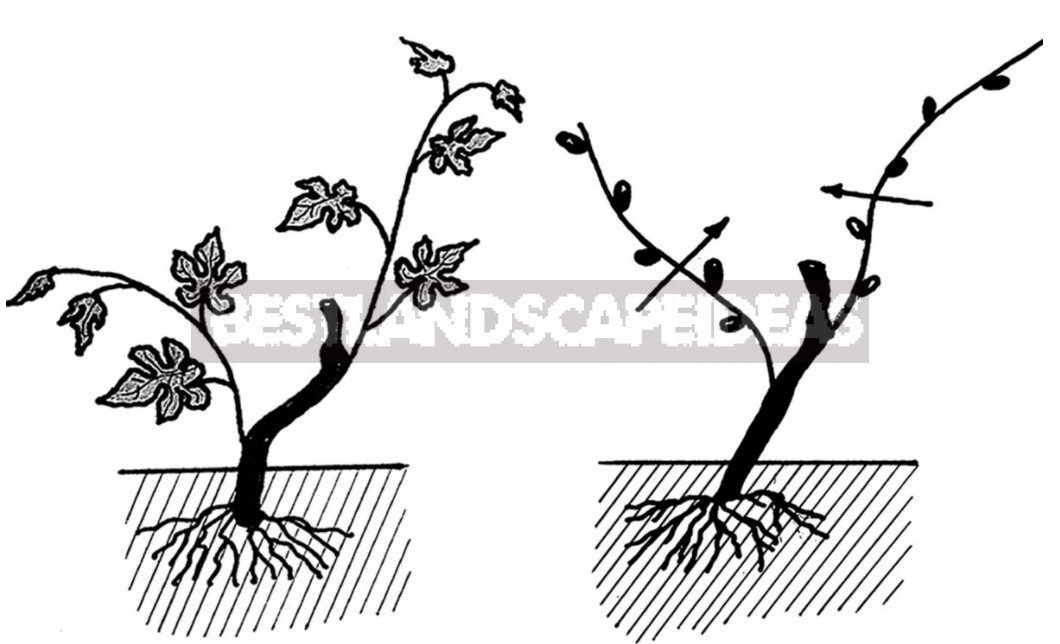
Third year
In the spring of the third year, 2 vines are already formed on each sleeve, of which the inner ones will be second-order sleeves.
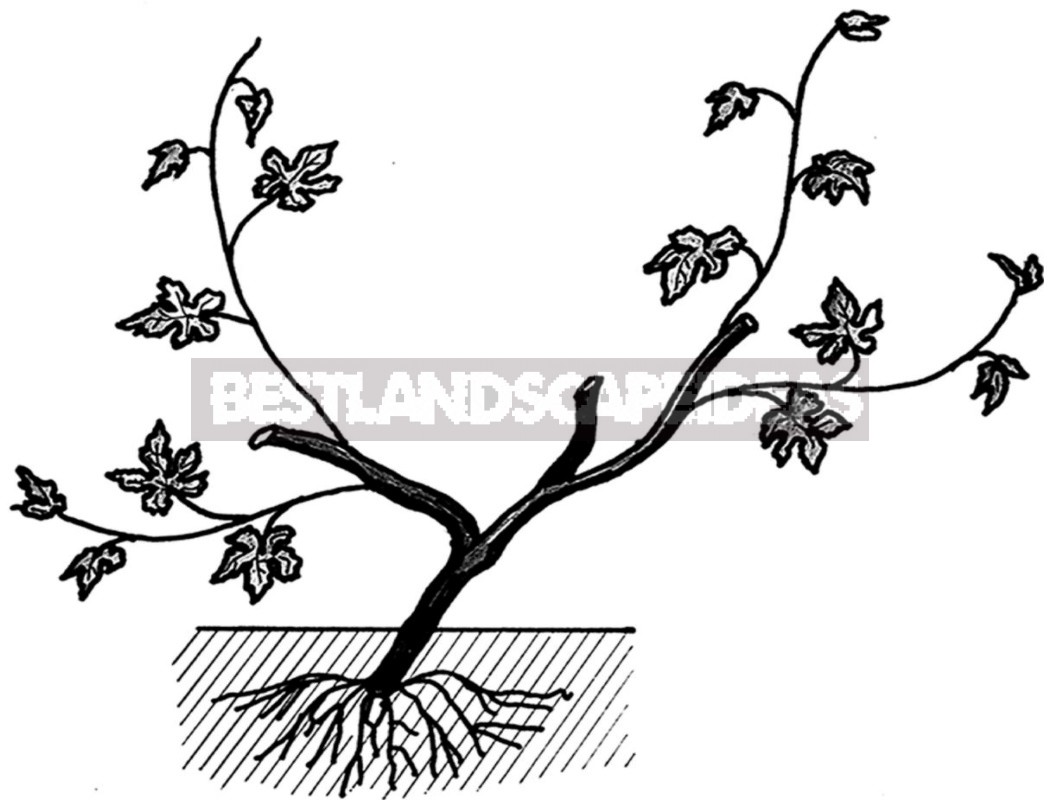
In autumn, all the sleeves are shortened by 2 buds and be sure to cut off the lignified stump with a sharp pruner to avoid its rotting. After that, we cover the Bush for the winter.
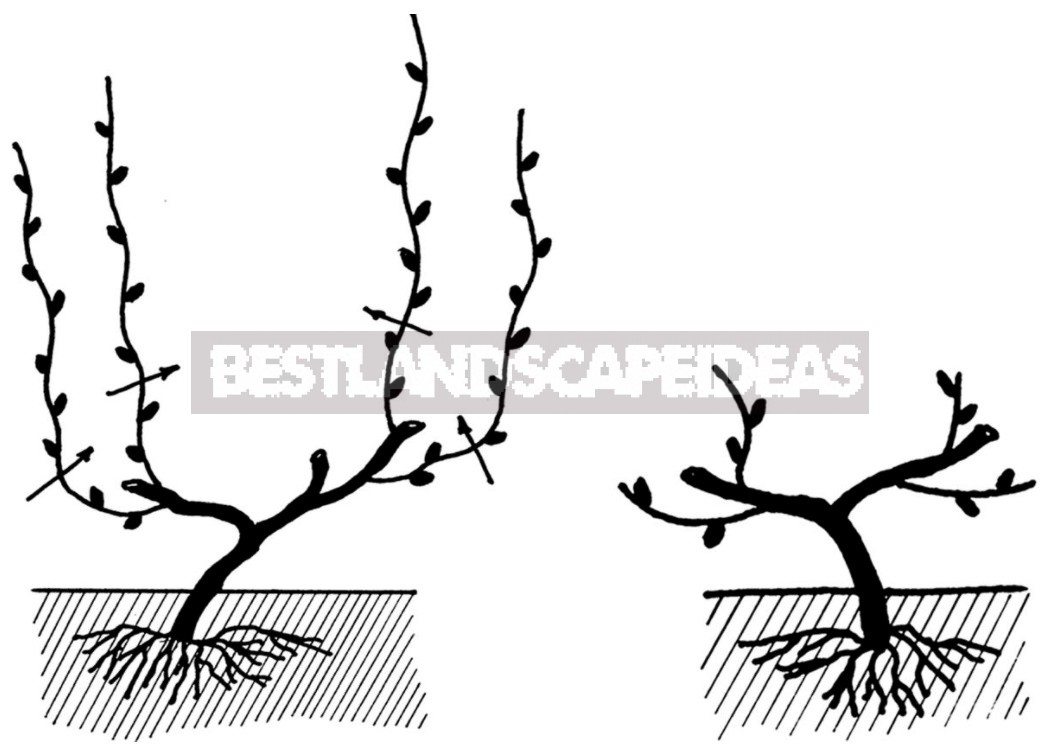
Fourth year
For the fourth year, we form fourth-order sleeves, as shown in the figures below.
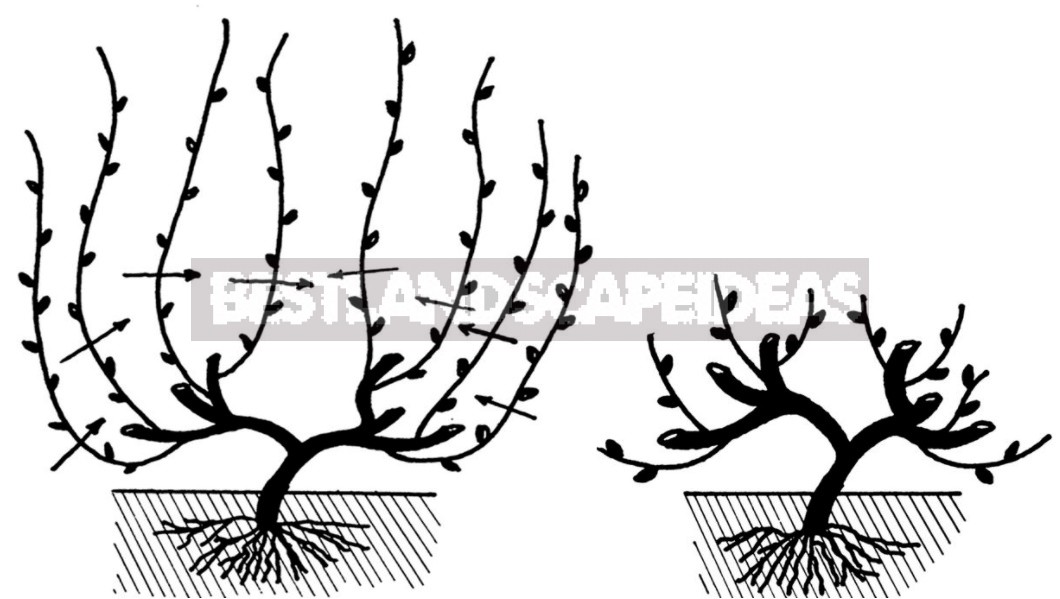
Fifth year
the fifth year, the formation of the Bush is completed. Note that the replacement knot is always located on the lower outer side of the vine. Each side received 4 vines and 4 replacement knots.
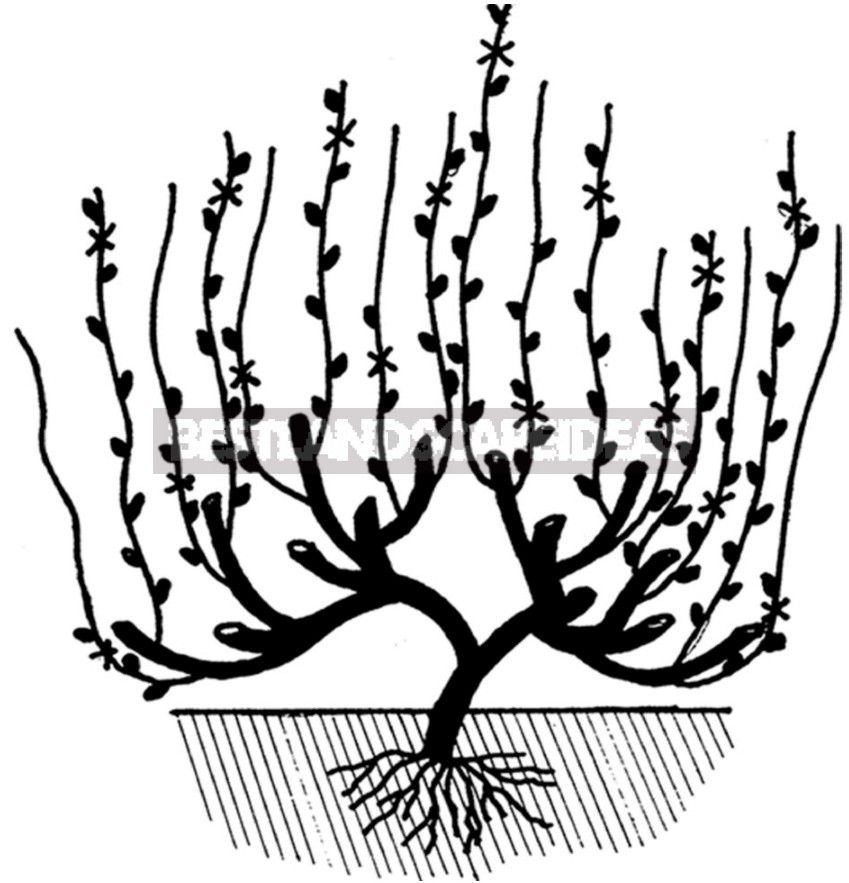
Pruning the fifth year differs from the previous ones, because the formation of a fruit pair begins — a replacement knot and a vine that will bear fruit the next year. The lowest vines on both sides are cut into 2 buds, and the vines above them are cut into 8-10 buds (see the diagrams below), and so on. Long vines will come into fruiting in the fifth year, and short-cropped ones will serve as replacement knots.
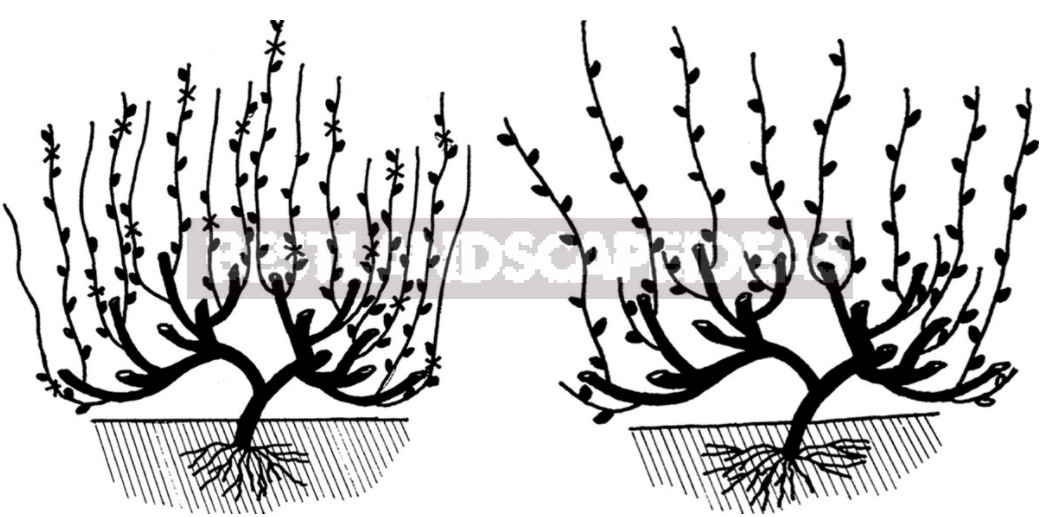
You should explain why you need replacement knots. A replacement knot is a pruning of a freshly matured vine with two buds, on which a new pair will be formed again next year — a replacement knot and a fruit — bearing vine.
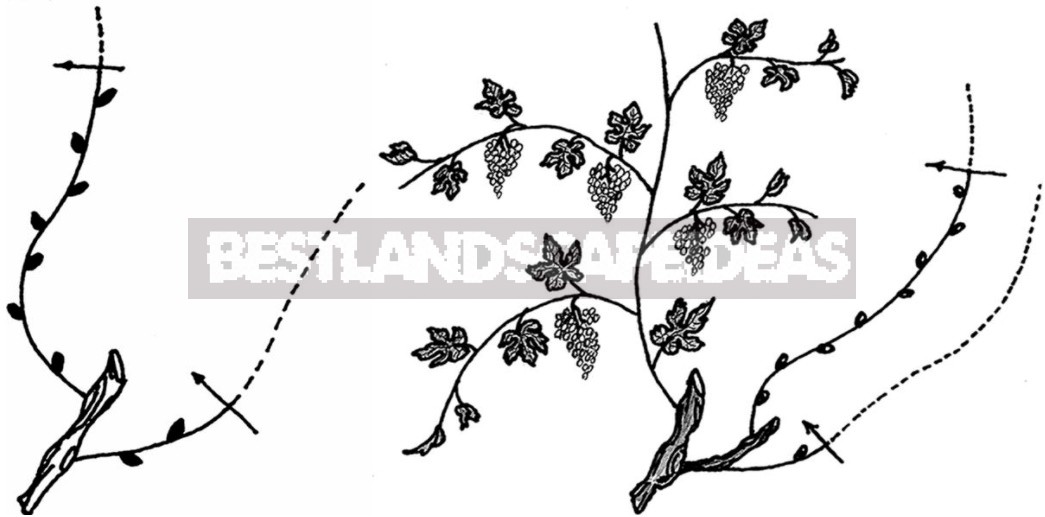
Regularly conducting a competent formation of grapes, you will get a harmoniously developing vine without thickening and overloading. And to achieve a good harvest from such a plant with the right agricultural technology will not be difficult.
